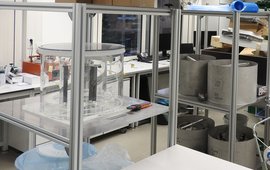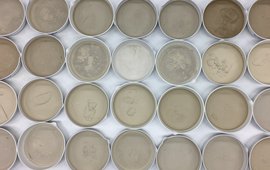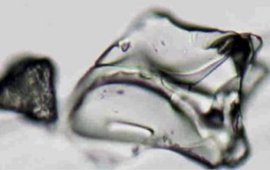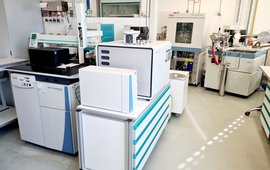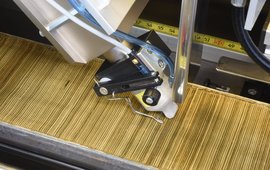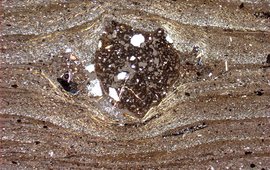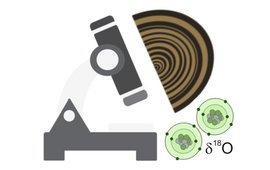Organic Surface Geochemistry Laboratory
In the Organic Surface Geochemistry Lab we conduct research on regional differences of the causes and effects of past climate change and variations in biogeochemical cycles.
Physical Laboratory
In the Physical Laboratory, we perform experiments to study mainly the interactions of sediment and water, but also measure rheological properties of sediment and prepare samples for further analysis in the other labs.
Sediment Laboratory (SedLab)
In the sediment lab we analyse the compositional properties of sediments. Disentangling sediments allows scientists to infer the history of the sediments, interpret sedimentary archives and learn about the processes that have generated and transported the sediments.
Tephrochronology Laboratory
In the laboratory for tephrochronology, visible and invisible (crypto-) tephras are extracted from sediment records and prepared for geochemical fingerprinting of the volcanic source as a chronological tool for palaeoclimate archives.
Stable isotope laboratory for sediments and water
In the laboratories for stable isotopes in sediments and water, the isotope ratios of the light elements nitrogen (N), carbon (C) and oxygen (O) in continental geoarchives such as lake sediments and speleothems as well as oxygen (O) and hydrogen (H) in precipitation and surface water are determined.
XRF Element Scanning Laboratory
The laboratory for XRF Element Scanning provides qualitative and non-destructive analyses of sediment compositions based on X-ray Fluoresces. These analyses provide detailed element records and maps that can be used to characterise past depositional, environmental and climatic conditions.
Microscopy Laboratory
The laboratory for microscopy focuses on the specific requirements of microfacies analysis of lake sediments, but also offers a wide range of possibilities for other applications.
Thin-section Laboratory
The thin section preparation is used to make or produce sections of soft sediments (lacustrine and marin), hard rock, minerals, frozen kernels, organic materials, soils, ores and hygroscopic samples such as salts and clays.
Dendroclimatology Laboratory
The Dendroclimatology Laboratory serves for the reconstruction of temporal and spatial variability of the climate of the past utilizing multi-parameter tree ring analysis.

